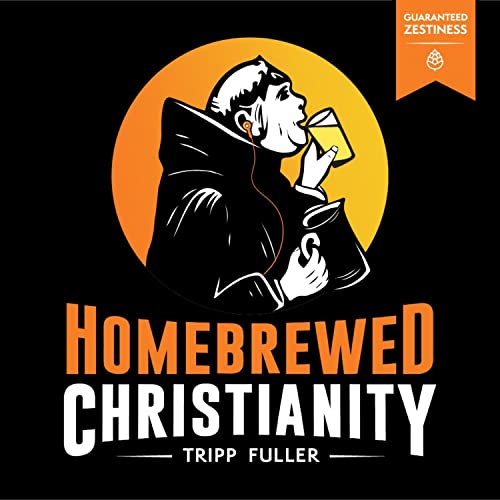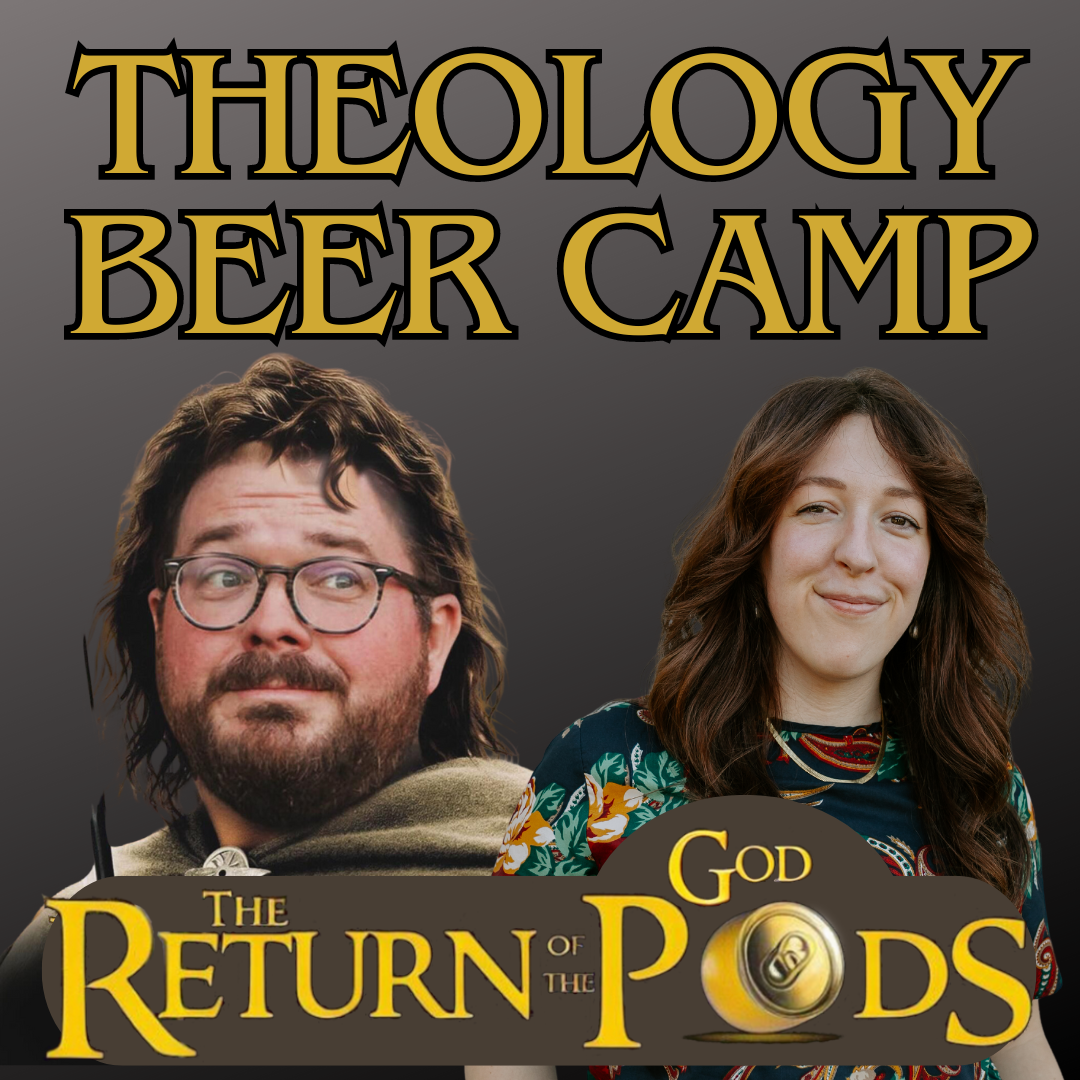- Home
- Process Worldview
- Community
- Art and Music
- Whitehead and Process Thinking
- Podcasts
- Spirituality
- Ecological Civilization
- Education
- Contact
- Social Justice
- Science
- Animals
- Sacred Poems
- Whitehead Videos
- Index of All Titles
- Practicing Process Thought
- Process Spirituality: A Spiritual Alphabet
- Recent Posts
Joy for its Own Sake
Joy for its own sake, laughter and conviviality without pretext, meeting time's advance with unapologetic delight, raucous noise, good friends — these are nothing less than the eruption of the hidden light cracking the conventional crust of our mature good sense, our dehumanizing obsession with control, our idolatrous reliance on possession as salvation. In this most secular of celebrations lies hidden the most vital of religious purposes. The light is there to be found. Party on!
Rabbi Bradley Artson. The Holiness of the Secular New Year
Rabbi Bradley Artson. The Holiness of the Secular New Year
Can God Laugh?
Ten Forms of Divine Laughter
dedicated to Tripp Fuller
Does God laugh with giggling babies? Parents certainly do, often starting with a tickle. But can God be tickled? Not physically but perhaps emotionally. Can God "be tickled" by the giggling of a baby? Or the achievement of a so-called "poor" student? Or the incongruities of ordinary life? Or the reconciliation of former enemies? Or the vastness of creation? Or the joys of human creativity or, that matter, the joys of divine creativity? Can God have fun? Does God have emotions? Can God laugh?
A key tenet of process theology is the notion that God possesses emotions. The primordial nature of God feels (prehends) the presence of timeless potentials with a desire for their actualization, while the consequent nature of God feels the feelings and activities of all creatures in the world with tender care. God then reacts with emotions unique to the divine essence. God is the living unity of the universe. And this living unity feels things.
The Deep Tenderness
What are these emotions? They are not hatred or disdain. Always they are kind and loving. One such emotion, for example, well known by any loving parent or grandparent, is tenderness. God nurtures each actual entity in the world, each living being, with, in Whitehead's words, a "tender care that nothing be lost." This includes not only people but also other animals and perhaps also living cells. And this is not just on our planet. It prompts us to ponder what "tenderness" might mean in a vast universe filled with galaxies, each harboring countless forms of sentient life. Call it cosmic tenderness.
This leads us to question: Can God laugh? Might God experience delight? Or is laughter deemed unworthy of God because perceived as frivolous? If this is true, humans bask in joy for its own sake, but God can't or doesn't. It is beneath God.
Christian process theology sees things otherwise. It sees God as incarnational, as taking delight in things of the flesh: giggling babies, for example.
God is the Laughing
To conceive of God laughing, it's not necessary to differentiate God from the laughter. In process theology, God isn't an entity separate from divine actions; God embodies the activity of realizing potentials, experiencing realities, and feeling emotions throughout these processes. Thus, we might talk about divine laughter without conjuring a distinct entity called "God" who laughs. The challenge lies in the subject-predicate structure of language, which when reified, conjures the illusion of a pre-existing subject that then acquires experiences as if they were mere attributes that could be appended or detached without altering the subject's essence.
Instead, consider the statement "God is love." This could imply that God exists and then performs loving actions, or it could denote that God embodies divine love in essence. I vote for the second option. God is Love, not human love but cosmic love. Similarly, I propose that God is cosmic laughter—a laughter that is an expression of love. This laughter arises in the divine life in various ways: it resonates with the joy of a child, it celebrates creativity and innocent fun, and it marvels at the universe's novelty. It is never derisive or exclusionary, ensuring that no one is marginalized from the joke. It's always inclusive, generous, and, fundamentally, an expression of laughter that is divinely intensified and universally pertinent. It is divine joy.
Open and Relational Joy
I speak as a process theologian but also an open and relational thinker. Process theology is a form of open and relational theology. In open and relational thinking, God is "open" in the sense of being open to an undetermined future and "relational" in the sense of being responsive to the world in a loving way.
A strength of open and relational theology is that it affirms a God who shares in the sufferings of the world. A weakness is that, as developed up to this point, it underemphasizes or neglects the fact that God also shares in the joys of the world. As I read the literature, it can seem as if God loves but does not play; cares but does not laugh; enjoys being worshipped as a loving presence, but would feel a little out of place at, say, a theology beer camp, especially on karaoke night. God wouldn't be caught dead singing a Dolly Parton song.
Part of the reason is that open and relational theology wants to avoid any hint that suffering doesn’t matter or that people should rest in self-absorbed pleasures while others suffer. In "God after Deconstruction," Tripp Fuller and Thomas Oord speak of the various reasons why people deconstruct images of God as a distant clockmaker or a changeless absolute or a commandeering puppeteer, and reimagine God as a loving presence. One of the reasons why people turn to an all-loving but non-controlling God of this sort is that people are struck by the "pointless pain" of the world: its injustices, its tragedies, its cruelties, human-caused and otherwise.
Fuller and Oord offer the image of a universal Spirit who does not direct and cannot control the evils faced by the world, but who is instead a fellow-sufferer who understands pain and is felt as an inwardly felt lure, within the human heart and mind, to help bring about a kinder and more sustainable world: a world of flourishing.
Why, then, a neglect of joy for its own sake. Part of reason may also be the legacy of a Puritan ethic, which is not at home with unapologetic delight. In such an ethic. when divorced from images of an authoritarian God, is nevertheless subservient to goodness at the expense of beauty. Everything must be in service to the God of love, or to healing a broken world, and nothing can be enjoyed on its own. This is part of a more general tendency in much Western philosophy to deny humor as a subject of serious attention and the sensory experience, in the here and now, as a site of the holy. This was Nietzsche's critique of Christianity. For Nietzsche, Christianity was earnest but joyless.
In the culture of open and relational theology, there are countervailing tendencies which point in a more holistic direction, despite what I've said. One is the Homebrewed Christianity Beer Camp, and still another is the inimitable style of Tripp Fuller himself. Even his choice of photographs for book covers (see below) makes others feel at home. He looks funny, curious, unpretentious. The image matches the man. One of Fuller's contributions to the open and relational movement is the content of this thought and the spirit of humor he adds to the culture open and relational theology. I've been to a Beer Camp. They are fun; there's a lot of laughter; and there's also a karaoke night, all combined with serious conversations about a wide range of theological topics. And you don't have to drink to like it. But you will laugh.
Happily, open and relational theology has a spirit and an idea that enables it to move forward into joy. It affirms that the very aim of the universal Spirit, the aim of God, to see and enjoy a “flourishing” world. Surely such a world includes joy as well as sorrow, pleasure as well as pain, delight as well as earnestness, aesthetic beauty as well as moral beauty. It will only take time for open and relational theology to become, as it were, more holistic. That process can proceed by recognizing that flourishing itself includes joy among humans and other animals and joy in God. Laughter itself is a primary means by which humans bond together in their humanity; without laughter there cannot be love. Hence the short note below on ten forms of divine laughter.
Ten Forms of Divine Laughter
Imagine the universe as a creative advance into novelty, with the Spirit envisioned as a universal presence desiring the flourishing of all within this creative journey. This Spirit doesn't control the universe but empathetically "feels the feelings" of every entity, offering fresh possibilities for their flourishing repeatedly. Omnipresent, the Spirit is engaged with and affected by all beings, not restricted by specific spatial locations. Because the future does not exist to be known in advance, the Spirit can be surprised. The actual future may differ from what is expected. The Spirit, too, knows incongruity, as well as delight, even in the absence of incongruity. What forms of laughter might be part of its life?
While the tenth form, encompassing sad laughter and laughter at absurdities, may seem tinged with negativity, it's important to recognize the spectrum this laughter covers—from innocent amusement to tragic irony. It's in these tragic absurdities that the Spirit's laughter converges with divine sorrow, showcasing profound empathy for the human condition. This laughter, infused with pathos, recognizes the paradoxical nature of existence where joy and pain coexist, urging a vision of a world where interconnected beings live in harmony, celebrating existence amidst the cosmos's laughter and love, despite life's inherent challenges and contradictions.
Thus, divine laughter emerges as a complex expression of the Spirit's deep engagement with the world, symbolizing not only shared suffering but also shared joys, perpetually aspiring toward a future where every being realizes the fullness of joy and flourishing. Laughter, in this context, is an integral aspect of the Spirit's love. It is true that God is love. And it is true that God is laughter.
A key tenet of process theology is the notion that God possesses emotions. The primordial nature of God feels (prehends) the presence of timeless potentials with a desire for their actualization, while the consequent nature of God feels the feelings and activities of all creatures in the world with tender care. God then reacts with emotions unique to the divine essence. God is the living unity of the universe. And this living unity feels things.
The Deep Tenderness
What are these emotions? They are not hatred or disdain. Always they are kind and loving. One such emotion, for example, well known by any loving parent or grandparent, is tenderness. God nurtures each actual entity in the world, each living being, with, in Whitehead's words, a "tender care that nothing be lost." This includes not only people but also other animals and perhaps also living cells. And this is not just on our planet. It prompts us to ponder what "tenderness" might mean in a vast universe filled with galaxies, each harboring countless forms of sentient life. Call it cosmic tenderness.
This leads us to question: Can God laugh? Might God experience delight? Or is laughter deemed unworthy of God because perceived as frivolous? If this is true, humans bask in joy for its own sake, but God can't or doesn't. It is beneath God.
Christian process theology sees things otherwise. It sees God as incarnational, as taking delight in things of the flesh: giggling babies, for example.
God is the Laughing
To conceive of God laughing, it's not necessary to differentiate God from the laughter. In process theology, God isn't an entity separate from divine actions; God embodies the activity of realizing potentials, experiencing realities, and feeling emotions throughout these processes. Thus, we might talk about divine laughter without conjuring a distinct entity called "God" who laughs. The challenge lies in the subject-predicate structure of language, which when reified, conjures the illusion of a pre-existing subject that then acquires experiences as if they were mere attributes that could be appended or detached without altering the subject's essence.
Instead, consider the statement "God is love." This could imply that God exists and then performs loving actions, or it could denote that God embodies divine love in essence. I vote for the second option. God is Love, not human love but cosmic love. Similarly, I propose that God is cosmic laughter—a laughter that is an expression of love. This laughter arises in the divine life in various ways: it resonates with the joy of a child, it celebrates creativity and innocent fun, and it marvels at the universe's novelty. It is never derisive or exclusionary, ensuring that no one is marginalized from the joke. It's always inclusive, generous, and, fundamentally, an expression of laughter that is divinely intensified and universally pertinent. It is divine joy.
Open and Relational Joy
I speak as a process theologian but also an open and relational thinker. Process theology is a form of open and relational theology. In open and relational thinking, God is "open" in the sense of being open to an undetermined future and "relational" in the sense of being responsive to the world in a loving way.
A strength of open and relational theology is that it affirms a God who shares in the sufferings of the world. A weakness is that, as developed up to this point, it underemphasizes or neglects the fact that God also shares in the joys of the world. As I read the literature, it can seem as if God loves but does not play; cares but does not laugh; enjoys being worshipped as a loving presence, but would feel a little out of place at, say, a theology beer camp, especially on karaoke night. God wouldn't be caught dead singing a Dolly Parton song.
Part of the reason is that open and relational theology wants to avoid any hint that suffering doesn’t matter or that people should rest in self-absorbed pleasures while others suffer. In "God after Deconstruction," Tripp Fuller and Thomas Oord speak of the various reasons why people deconstruct images of God as a distant clockmaker or a changeless absolute or a commandeering puppeteer, and reimagine God as a loving presence. One of the reasons why people turn to an all-loving but non-controlling God of this sort is that people are struck by the "pointless pain" of the world: its injustices, its tragedies, its cruelties, human-caused and otherwise.
Fuller and Oord offer the image of a universal Spirit who does not direct and cannot control the evils faced by the world, but who is instead a fellow-sufferer who understands pain and is felt as an inwardly felt lure, within the human heart and mind, to help bring about a kinder and more sustainable world: a world of flourishing.
Why, then, a neglect of joy for its own sake. Part of reason may also be the legacy of a Puritan ethic, which is not at home with unapologetic delight. In such an ethic. when divorced from images of an authoritarian God, is nevertheless subservient to goodness at the expense of beauty. Everything must be in service to the God of love, or to healing a broken world, and nothing can be enjoyed on its own. This is part of a more general tendency in much Western philosophy to deny humor as a subject of serious attention and the sensory experience, in the here and now, as a site of the holy. This was Nietzsche's critique of Christianity. For Nietzsche, Christianity was earnest but joyless.
In the culture of open and relational theology, there are countervailing tendencies which point in a more holistic direction, despite what I've said. One is the Homebrewed Christianity Beer Camp, and still another is the inimitable style of Tripp Fuller himself. Even his choice of photographs for book covers (see below) makes others feel at home. He looks funny, curious, unpretentious. The image matches the man. One of Fuller's contributions to the open and relational movement is the content of this thought and the spirit of humor he adds to the culture open and relational theology. I've been to a Beer Camp. They are fun; there's a lot of laughter; and there's also a karaoke night, all combined with serious conversations about a wide range of theological topics. And you don't have to drink to like it. But you will laugh.
Happily, open and relational theology has a spirit and an idea that enables it to move forward into joy. It affirms that the very aim of the universal Spirit, the aim of God, to see and enjoy a “flourishing” world. Surely such a world includes joy as well as sorrow, pleasure as well as pain, delight as well as earnestness, aesthetic beauty as well as moral beauty. It will only take time for open and relational theology to become, as it were, more holistic. That process can proceed by recognizing that flourishing itself includes joy among humans and other animals and joy in God. Laughter itself is a primary means by which humans bond together in their humanity; without laughter there cannot be love. Hence the short note below on ten forms of divine laughter.
Ten Forms of Divine Laughter
Imagine the universe as a creative advance into novelty, with the Spirit envisioned as a universal presence desiring the flourishing of all within this creative journey. This Spirit doesn't control the universe but empathetically "feels the feelings" of every entity, offering fresh possibilities for their flourishing repeatedly. Omnipresent, the Spirit is engaged with and affected by all beings, not restricted by specific spatial locations. Because the future does not exist to be known in advance, the Spirit can be surprised. The actual future may differ from what is expected. The Spirit, too, knows incongruity, as well as delight, even in the absence of incongruity. What forms of laughter might be part of its life?
- Delighted Laughter: The Spirit might experience laughter similar to how parents respond to their children's joy, resonating with the universe's delightful and positive events, like a giggling infant.
- Connective Laughter: Just as laughter builds social bonds among humans, the Spirit's laughter might foster connections within creation, reflecting a commitment to life's flourishing. Humans come together "in the Spirit" through shared, non-hateful laughter.
- Understanding Laughter: This laughter, denoting empathy and insight, suggests the Spirit's deep understanding of human predicaments and the world's complexities. It is laughter that says, "I understand."
- Playful Laughter: Reflecting joy in spontaneity and play, this laughter portrays the Spirit delighting in creation's playful evolution and free expressions, akin to the laughter shared by playing children.
- Joyful Laughter: This laughter signifies the Spirit's deep joy in the act of creation and the ongoing dance of existence, embodying the joy of creativity.
- Serene Laughter: Representing a divine sense of peace and contentment with the universe's unfolding story, this laughter reflects the Spirit's tranquil acceptance and profound joy in observing the harmonious interplay of all creation.
- Humble Laughter: At the heart of self-effacing laughter, this type reflects enjoyment when individuals humorously acknowledge their own fallibility, resonating with divine humility, reminiscent of the Christian concept of incarnation.
- Infectious Laughter: A robust, uninhibited reaction engaging the entire body, characterized by deep, hearty laughs that are loud and echoing, often accompanied by physical gestures like holding one's stomach or shedding tears of joy. This genuine and spontaneous laughter, infectious in nature, is the Spirit's invitation to join in the revelry.
- Sad Laughter: Known as melancholic or bitter laughter, this response mixes amusement with sadness or pain, acknowledging life's irony or absurdity amidst adversity or sorrow, mirrored in the Spirit's realm.
- Laughter at Absurdities: The Spirit may laugh at the world's absurdities, not mockingly, but as a sincere reaction to the incongruities and irrationalities in human actions and the cosmos.
While the tenth form, encompassing sad laughter and laughter at absurdities, may seem tinged with negativity, it's important to recognize the spectrum this laughter covers—from innocent amusement to tragic irony. It's in these tragic absurdities that the Spirit's laughter converges with divine sorrow, showcasing profound empathy for the human condition. This laughter, infused with pathos, recognizes the paradoxical nature of existence where joy and pain coexist, urging a vision of a world where interconnected beings live in harmony, celebrating existence amidst the cosmos's laughter and love, despite life's inherent challenges and contradictions.
Thus, divine laughter emerges as a complex expression of the Spirit's deep engagement with the world, symbolizing not only shared suffering but also shared joys, perpetually aspiring toward a future where every being realizes the fullness of joy and flourishing. Laughter, in this context, is an integral aspect of the Spirit's love. It is true that God is love. And it is true that God is laughter.



